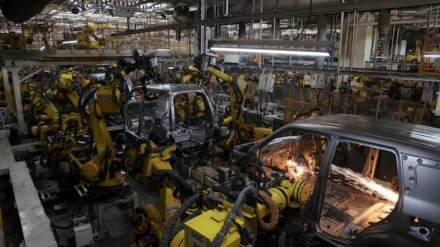Amid growing shortage of rare earth magnets, which are essential for electric vehicle (EV) manufacturing, the auto component industry on Tuesday urge the government for a national strategy on critical materials.
The Automotive Component Manufacturers Association of India (ACMA) said the supply crunch threatens the sector’s long-term competitiveness and stability.
“Limited availability of rare earth magnets remains a key concern, highlighting the urgent need for a national strategy on critical materials to safeguard the future of EV and mobility manufacturing in India,” Acma president Shradha Suri Marwah said, releasing the auto components’ industry performance review for FY25.
Since April, India has been unable to import rare earth magnets from China, the primary global supplier. These magnets are vital for traction motors used in electric vehicles. China, which controls nearly 90% of global rare earth processing, introduced stricter export controls earlier this year, requiring permits for outbound shipments of rare earth elements and related products. While some Western countries have reportedly seen improved access, Indian importers have not received any such relief.
The domestic automotive supply chain has started to witness some disruption. Manufacturers, including Bajaj Auto and TVS Motor, have publicly flagged the issue, warning of possible production delays if the situation persists. “Nobody has formally told us [about production cuts]. But yes, we understand that since April, there has been no import of rare-earth magnets, and the situation can last as long as they have the inventories,” Marwah said.
Industry representatives are seeking meetings with Chinese authorities to resolve the impasse, but there has been no progress so far. In parallel, the government is examining ways to boost domestic production of rare earth materials. Despite holding over 7 million tonne in reserves, India’s annual output has remained under 3,000 metric tonne.
Acma director-general Vinnie Mehta described the situation as a wake-up call. “The only solution for this is for us to be Atmanirbhar. We have to focus all our energies. There are no options left,” he said, stressing the need to localise the supply chain for critical materials.
Several domestic companies are working on alternatives to conventional rare earth magnets or developing magnet-free motors. Firms such as Mahle, Valeo, Sterling Gtake, and Sona Comstar are pursuing designs that avoid rare earths altogether. However, industry experts caution that these solutions face performance and scalability challenges, especially for high-efficiency EV applications.
In the meantime, the industry continues to grow. The auto components sector posted a turnover of $80.2 billion in FY25, up 9.6% from the previous year. Exports rose 8% to $22.9 billion, while imports reached $22.4 billion. The US remained India’s top export destination, while China accounted for nearly a third of imports.
